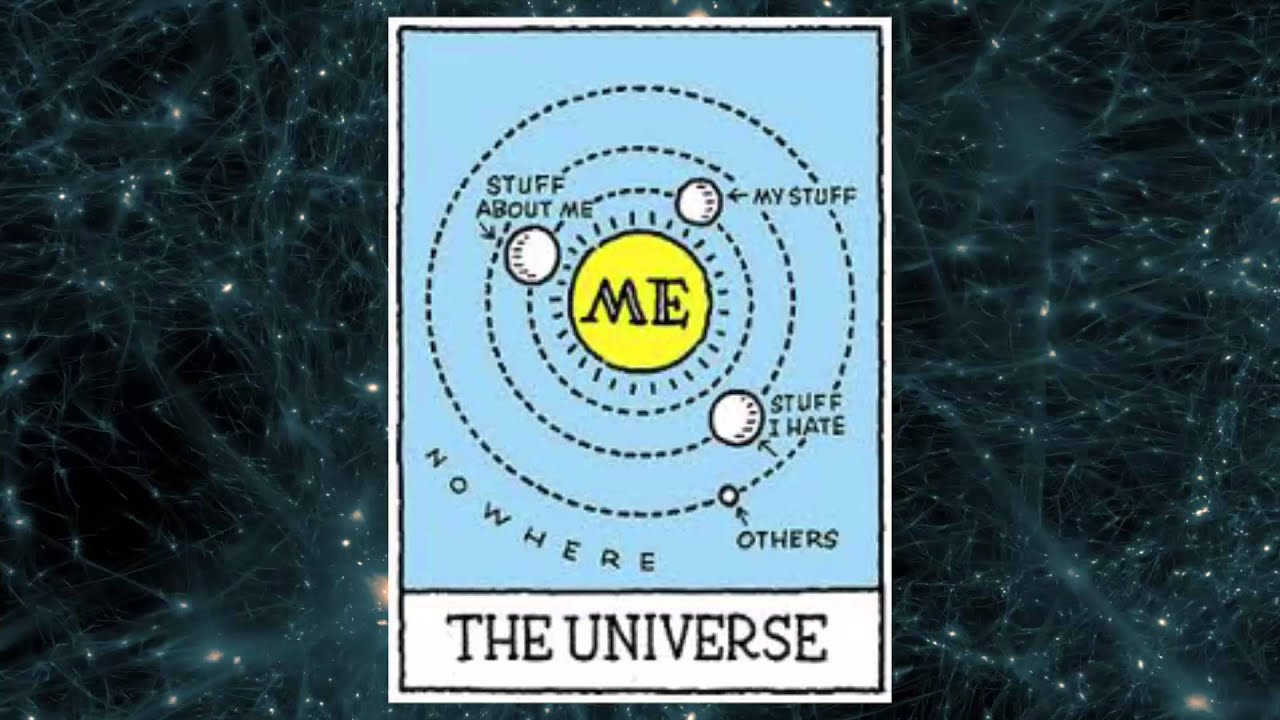

The Most Important Philosophical Ideas to Understand
The way we think, act, and interpret the world is shaped in subtle—and sometimes not-so-subtle—ways by the culture we grow up in. The values instilled in us, the language we use, and the very assumptions we make about life are often inherited without question. That’s where philosophy steps in. It serves as a tool for self-awareness, allowing us to peel back those inherited layers and start asking why. Why do we believe what we believe? Why do we behave a certain way when challenged? Through philosophical inquiry, we gain access to the roots of our behavior and the deeper truths of who we are, giving us a mirror to better understand both our inner world and the society we’re woven into.
10 Fundamental Ideas from Philosophy That Everyone Should Explore
1. The Power of Looking Inward – Introspection

Introspection, at its core, is about turning your attention inward—quieting the noise of the outside world long enough to ask yourself the big questions. Who am I, really? Why do I believe the things I believe? Is there a chance I’ve been wrong this whole time?
It’s more than just pondering thoughts in the shower. Real introspection means observing your thoughts and emotions in real-time, almost like you’re an outsider watching them unfold. This skill becomes vital when you’re trying to form a grounded identity or make sense of life’s deeper dilemmas. When practiced earnestly, introspection is the gateway to personal growth, emotional maturity, and philosophical resilience.
2. You Are Many – Understanding Inner Pluralism
There’s a myth that each of us is a singular, unified self. But the truth is, our minds often resemble a boardroom full of differing voices. You’ve probably felt it—that mental tug-of-war when part of you wants to take a risk, while another part warns you to play it safe. That’s internal pluralism.
Most of us let the loudest voice win without realizing there's a whole cast of characters within us, each with a different viewpoint, shaped by different life experiences, emotions, and past memories. Recognizing that you are not just one voice but many gives you deeper insight into your behaviors and decisions. It's not about being unstable—it's about being human.
And no, this isn’t about hearing voices in a clinical sense. It’s about learning to step back and observe your inner dialogue with neutrality. Doing so helps you stop reacting and start responding with thoughtful clarity.
3. The Solitary Reality – Solipsism

Solipsism poses one of the most mind-bending philosophical questions: How can you be sure that anything exists beyond your own mind?
This isn’t just a thought experiment for stoners or night owls. It’s a fundamental issue of epistemology—the study of knowledge itself. If your entire experience of reality is filtered through your senses and mind, what objective proof do you have that anything outside of you truly exists?
While solipsism may seem impractical in daily life (you still have to do laundry, after all), grappling with this idea helps you understand just how fragile and assumed your concept of "reality" really is. It’s about intellectual humility—about understanding that your experience of the world might not be the world itself.
4. The Trap of Introspective Illusion
Most people view their own actions through the lens of intent. You know your own motives. But when others act, we tend to judge them based on the consequences. That’s the introspective illusion.
Imagine you trip over a crack in the sidewalk. You shrug and think, “That wasn’t my fault.” But if you saw someone else do the same thing, your gut reaction might be, “Wow, that guy’s clumsy.” See the discrepancy?
This disconnect becomes especially dangerous in conflict. You know you didn’t mean to be rude—you were just stressed. But to the other person, your words stung, and that’s all that matters. Multiply that misunderstanding across families, friendships, cultures, even nations, and the result can be catastrophic.
One way to reduce this illusion is to consciously remind yourself that others have inner lives too—full of motives, insecurities, and context you can’t see. It’s a small but powerful step toward empathy.
5. Everything Is Relative – Embracing Relativism

After enough introspection, something shifts. You begin to see that your beliefs might not be the unshakable truths you once thought they were. That’s where relativism comes in.
Relativism challenges the notion of absolute truth. It suggests that what you believe to be “right” or “true” is often shaped by your culture, upbringing, and personal experiences—and that others might be just as justified in seeing things differently.
This idea can be freeing, humbling, and terrifying all at once. On the one hand, it encourages tolerance and open-mindedness. On the other, it can make you question everything. Some people find peace in that uncertainty; others spiral into existential crisis. But either way, confronting relativism is a necessary milestone on any philosophical path.
6. The Abyss Within – Existentialism
You’re not truly an adult until you’ve stared into the void of existentialism. That’s what a friend of mine once said, and honestly, it stuck.
Existentialism is the philosophical attempt to make peace with the idea that life might not come preloaded with meaning. It asks: If there is no grand cosmic script, then how do you create a meaningful life anyway?
Rather than offering despair, existentialism empowers. If no one hands you purpose, then you're free to write your own. But it also warns of the dangers of avoiding this confrontation. Clinging blindly to dogma or superficial distractions can leave you hollow when those illusions crack.
Thinkers like Kierkegaard, Camus, and Peter Wessel Zapffe dove deep into this realm. Zapffe’s essay “The Last Messiah” presents a haunting but strangely comforting view: human consciousness may be a curse, but awareness gives you the power to choose how to live, regardless of cosmic silence.
7. A Life of Peace – Epicureanism
Epicurus, an ancient Greek philosopher, was centuries ahead of his time. His teachings were so profound that modern science only recently caught up to some of them. His philosophy, Epicureanism, distilled happiness into a few core ideas:
-
Don’t fear the gods.
-
Don’t fear death.
-
What is good is easy to get.
-
What is painful is easy to endure.
He wasn’t preaching hedonism or gluttony, as some critics have wrongly assumed. Instead, Epicurus emphasized simple pleasures, inner tranquility, and the release from irrational fears—especially the fear of death. He believed that once you understand death as a non-experience, it stops haunting you.
Unfortunately, much of his wisdom was buried or distorted by institutions like the early Church, which found his ideas too incompatible with religious dogma. But his legacy lives on for those who seek contentment through reason.
8. Spotting Flawed Thinking – Logical Fallacies

In today’s world of nonstop opinions and internet arguments, the ability to recognize logical fallacies is more essential than ever.
Fallacies are errors in reasoning that undermine the logic of an argument. They come in many flavors—ad hominem, straw man, slippery slope, false dilemma—and they’re used everywhere: politics, advertising, even daily conversations.
It’s easy to spot fallacies in others. The real challenge lies in catching yourself when you use them. That’s where self-awareness comes into play. Are you trying to win an argument, or are you trying to be honest? The more you train yourself to think clearly and consistently, the harder it becomes to fall back on lazy logic.
Developing this skill sharpens not only your debate skills but your worldview. It forces you to think, not just feel, your way through tough decisions.
9. The Is-Ought Gap – Hume’s Guillotine
David Hume, an 18th-century philosopher, pointed out a subtle but powerful distinction that most people miss: the difference between what is and what ought to be.
This is often called Hume’s Guillotine. Just because something exists in a certain way doesn’t automatically mean it should exist that way. For instance, the fact that inequality exists doesn’t justify inequality. The leap from describing the world to prescribing how it should be requires extra justification.
This distinction is more than academic. It forces you to examine your values, your priorities, and your assumptions about how change should happen. Before you propose a better world, you must understand the world as it is—and the philosophical lens through which you view it.
10. The Greatest Good – Utilitarianism
Jeremy Bentham’s idea of utilitarianism remains one of the most practical and influential ethical frameworks ever developed. In simple terms: aim for the greatest good for the greatest number of people.
That doesn’t mean utilitarianism is easy. How do you measure “good”? What if helping many people hurts a few? Can happiness really be quantified?
Still, this approach underpins much of modern policy-making, from economics to public health. And when used wisely, it offers a rational way to navigate moral complexity—especially in a diverse society where not everyone agrees on what’s “right.”
Bentham’s legacy endures not just in textbooks but in the very structure of modern life. And his ideas were, in many ways, extensions of earlier thinkers like Epicurus—people who saw human well-being as the cornerstone of ethical reasoning.
Creating a Coherent Inner Framework
Philosophy, in the end, is not just about acquiring a library of clever ideas. It’s about building a consistent self. When you examine your beliefs—political, religious, personal—and link them together through careful thought, something incredible happens. You stop being ruled by reaction and start acting from understanding.
This is the real power of philosophy: it gives you a foundation to stand on, even when the world shakes. It helps you form a worldview that isn’t just borrowed from others but forged through your own reflection. And once that happens, you’ll know yourself—not as someone who has all the answers, but as someone who knows how to keep asking the right questions.



